- Call us: 01444 237070
- Contact Us
- Stores
- Sign In / Register
-
- Back
- Used Cameras
- Used Accessories
- Used Lenses
- Used Video
- Used Film Equipment
- Used Stock Alert
- Used Blank Test
- Sell or Part Exchange
- Used Clearance
- Recently Added Used Equipment
- Park Picks
- All Used Black Friday Deals
- Faulty
- Trade-In
- Blog
- New in
- Call us
- Contact us
- Stores
- Sign in
- Categories
- Tips & Inspiration
- Reviews
- News
- Events
- Features
- Buying Guides
- Competitions
Photography For Beginners
Photography is one of the most enjoyable ways to capture life’s moments to share with friends, family and followers. It can also help us to be more focused, take us outdoors into nature and to connect with likeminded people who share our passion.
However, if you’re new to photography, you may feel intimidated when looking for which camera to buy or which is the best lens for the type of photography you enjoy. But once you’ve got the right gear and mastered the basics of photography, taking amazing photos will become almost second nature. So, whether you’re a new parent capturing baby photos, or an adventurer who wants to travel with a camera, you’ll discover the best photography ideas for beginners right here.
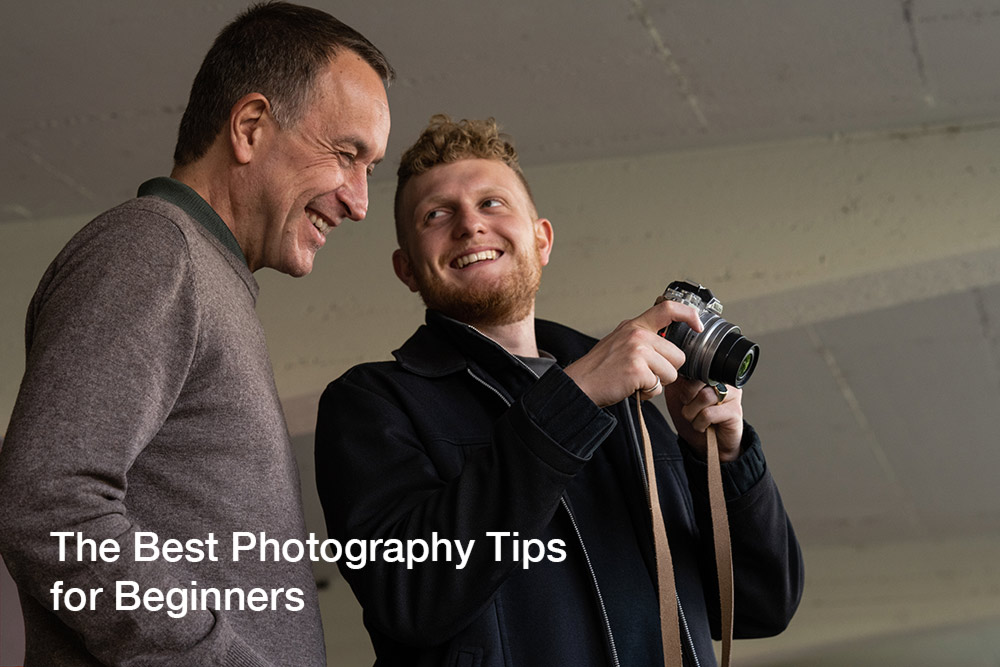
How to Take Good Photos
There's a lot to learn when you're starting out on your exciting new photography journey. From choosing between a mirrorless or DSLR to find your perfect camera, to navigating the plethora of photography accessories to help you take beautiful photos - it can feel like a minefield before you've even started snapping! However, we've got al of the best tips for starting photography to make getting started an absolute breeze.
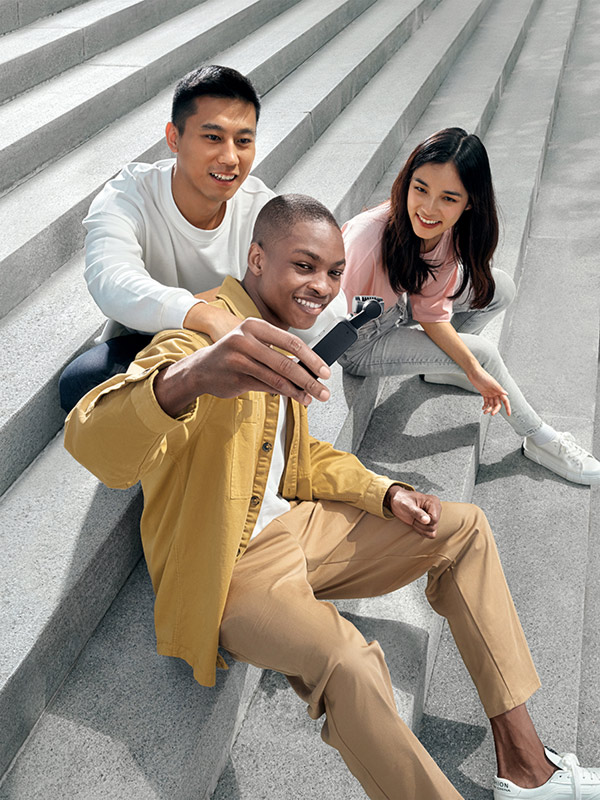
Invest in a Quality Camera
If you want to capture top-quality photos, you’ll need to invest in a good quality camera. Choosing the best cameras for beginners can seem like a minefield, but it doesn’t have to be complicated.
Most beginners will choose between some of the most popular brands, such as Canon, Nikon, Sony or Fujifilm. Picking the perfect one often comes down to personal taste, perhaps choosing a brand which your friends have, or the right ergonomics and handling. Any new camera from these brands will come with features designed to take amazing images and help you to progress your skills as you become more experienced.
However, if you’re on a tighter budget, buying an approved used camera is a great option, with many second-hand cameras in nearly new condition. A used camera from a reputable company will include a warranty and can save some extra cash for buying essential accessories or a second lens.
Once you’ve decided on the best camera for you, it’s time to get stuck in and learn all about photography.
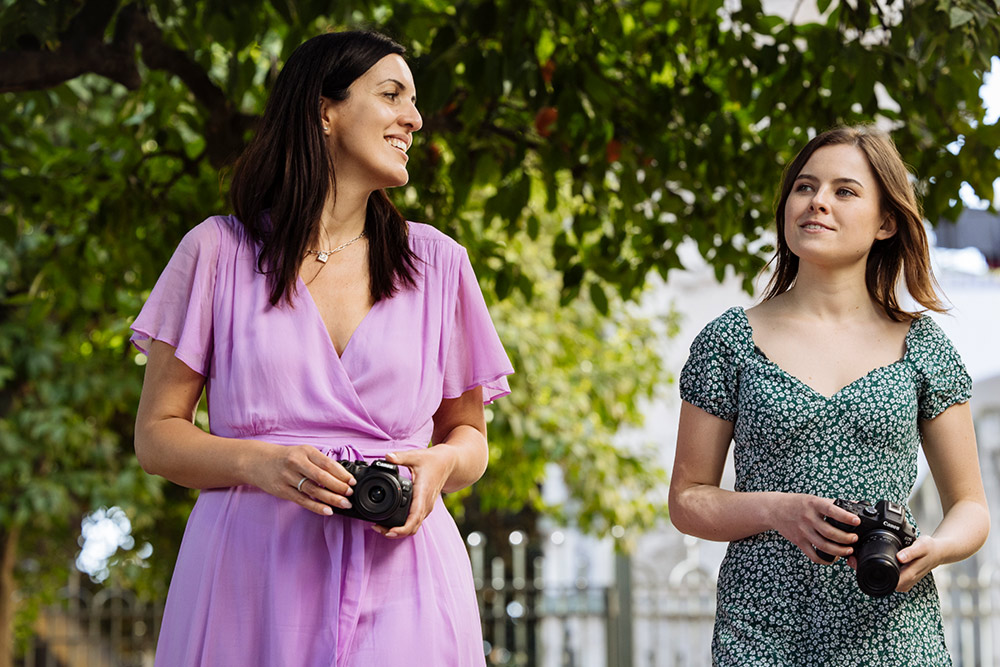
Learn the Photography Basics
When starting out, it’s a good idea to find out how your camera works and consider learning manual photography from day one. The basics of photography involve understanding the exposure triangle, which includes aperture, ISO and shutter speed. These three camera settings are key to capturing the best photos, which should be sharp, well-composed and tell a story.
Capturing photos in natural light is a great way to get a feel for how light affects an image. Try taking pictures in different lighting conditions, such as next to a window, in a dark street or during golden hour, as these all provide extremely different results and can help you to understand how light helps to create mood in your photos. Once you’ve tried these, you can explore artificial lighting and take more control with a portable flashgun or compact LED photography light.
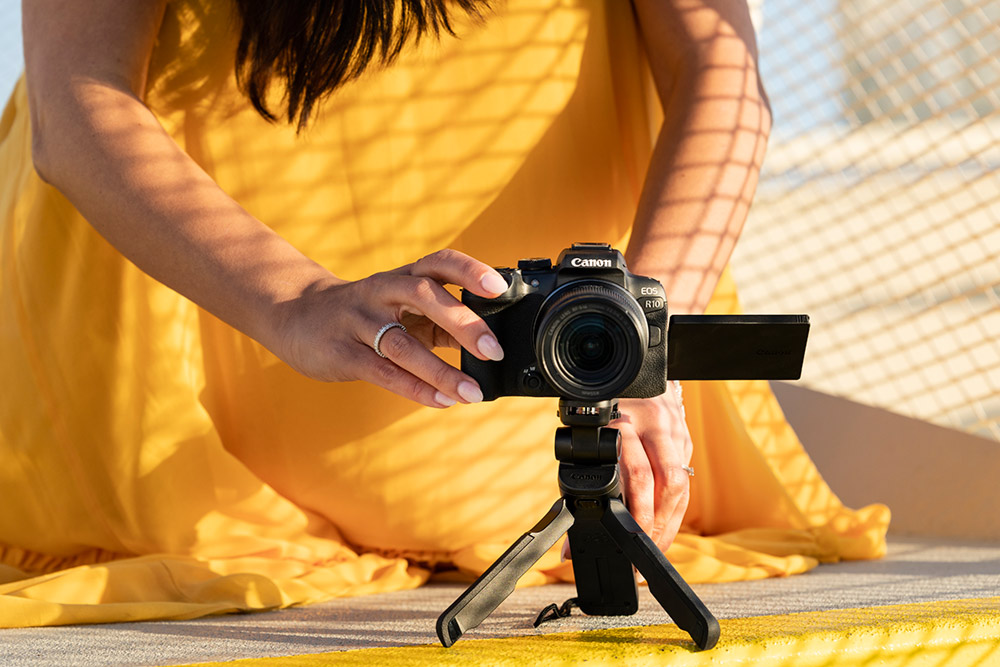
Knowing how lenses work is also incredibly important when just starting out. A lens is the ‘eye’ to your camera and does a lot of the work by gathering light and creating depth of field in your images. Choosing the best aperture setting to create depth in your photo will affect the exposure triangle we mentioned earlier. This means you’ll have to compensate for low light in order to get sharp results, which is where having a good grip and optical stabilisation come in.
Many newer lenses have stabilisation, which can reduce shake when shooting in darker conditions. Experimenting with your shutter speed, ISO and aperture will help you to understand the outcome of an image before you even take it.
You could also consider enrolling on a photography basics course, which will accelerate your understanding and present the opportunity to ask your tutor questions. One of the most common discussion points on beginner photography courses is composition. Composing your image is as important as understanding your gear and the light you’re working with. A strong composition will lead the viewer’s eye to the point of interest, whether that be a portrait, building, or tree in the landscape.
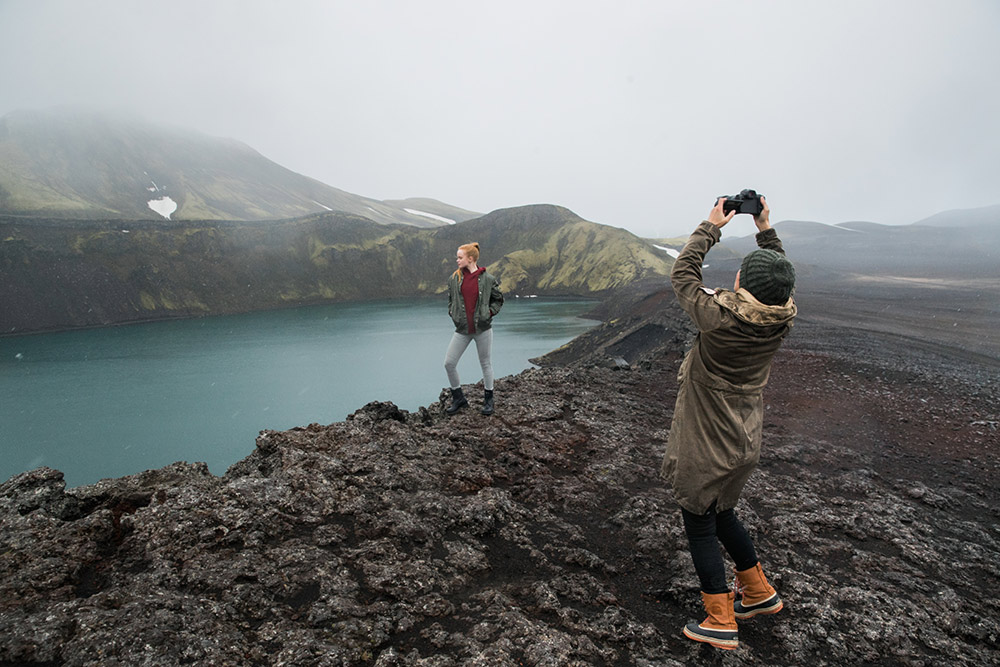
Practice, Practice, Practice
When you get the photography bug, you’ll just want to get out and shoot more photos, which is ideal, as practice makes perfect. You should try honing in on the subjects which interest you the most, such as such as portraits, street photography, wildlife or landscapes. Practicing just one or two types of photography will help you to master them more quickly.
Similarly, it helps to really understand your gear so that you can change settings intuitively based on the shot you’re taking. This could mean working with just one lens and testing your compositions by walking around a subject, or by using a single light in various positions to see how a picture is affected.
When you’re done shooting, it’s important to review your photos to understand what works and what doesn’t for your next practice session. It can also be useful to gain inspiration from photography books or study the best photographers on social media, as seeing other photographers work can help you to adjust how you capture images.
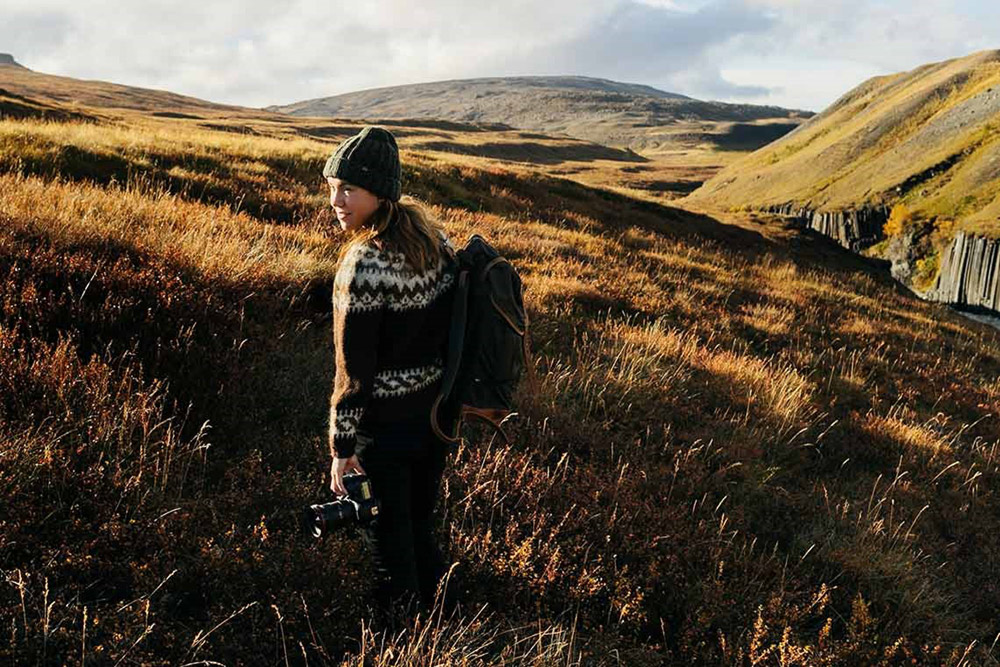
Is Photography Hard to Learn?
Digital cameras make it easier than ever to learn photography, largely because you can instantly review your shot and change anything which wasn’t quite right.
Most cameras also have incredibly advanced focus systems and brilliant auto exposure capabilities to take the hassle out of some of the more technical aspects of photography. This allows everyone to take good photos from the outset, but those who practice the artistic side of photography can attain the best skills. Practising things like composition, lighting and storytelling can all help to elevate a good photo to a great photo, which will your work apart.
Every photographer will experience setbacks, lose motivation or simply miss a great shot. This is perfectly natural, and all professional photographers have countless stories of opportunities they missed along the way. Don’t let these kinds of things stop you, keep shooting and you will see your images improving with each new attempt.
When starting out in photography, you should start by learning how your camera works, how lenses affect an image and even the basics of the exposure triangle, which is the foundation of photography. It’s also useful to have an understanding of how light can affect mood and the importance of practice so that you can progress quickly in your latest hobby! Shop our range of cameras to find the perfect one to start on your exciting new journey today!
Share this post:
By Park Cameras on 08/07/2022
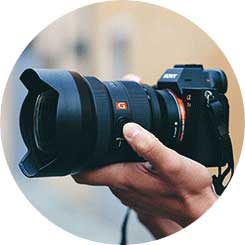
Trade in your old equipment
Fast and easy trade in service ensures your old gear is collected efficiently and you are paid quickly! It's very simple to trade in your unwanted photography gear. Just head over to our dedicated Sell or Part Exchange page, fill out the details, and we'll get back to you with an offer for your old gear. Take the cash, or put it towards the cost of your new gear. It's up to you! Find out more
sign up to the newsletter
Keep up to date on the latest photography news, events and offers. Sign up now
